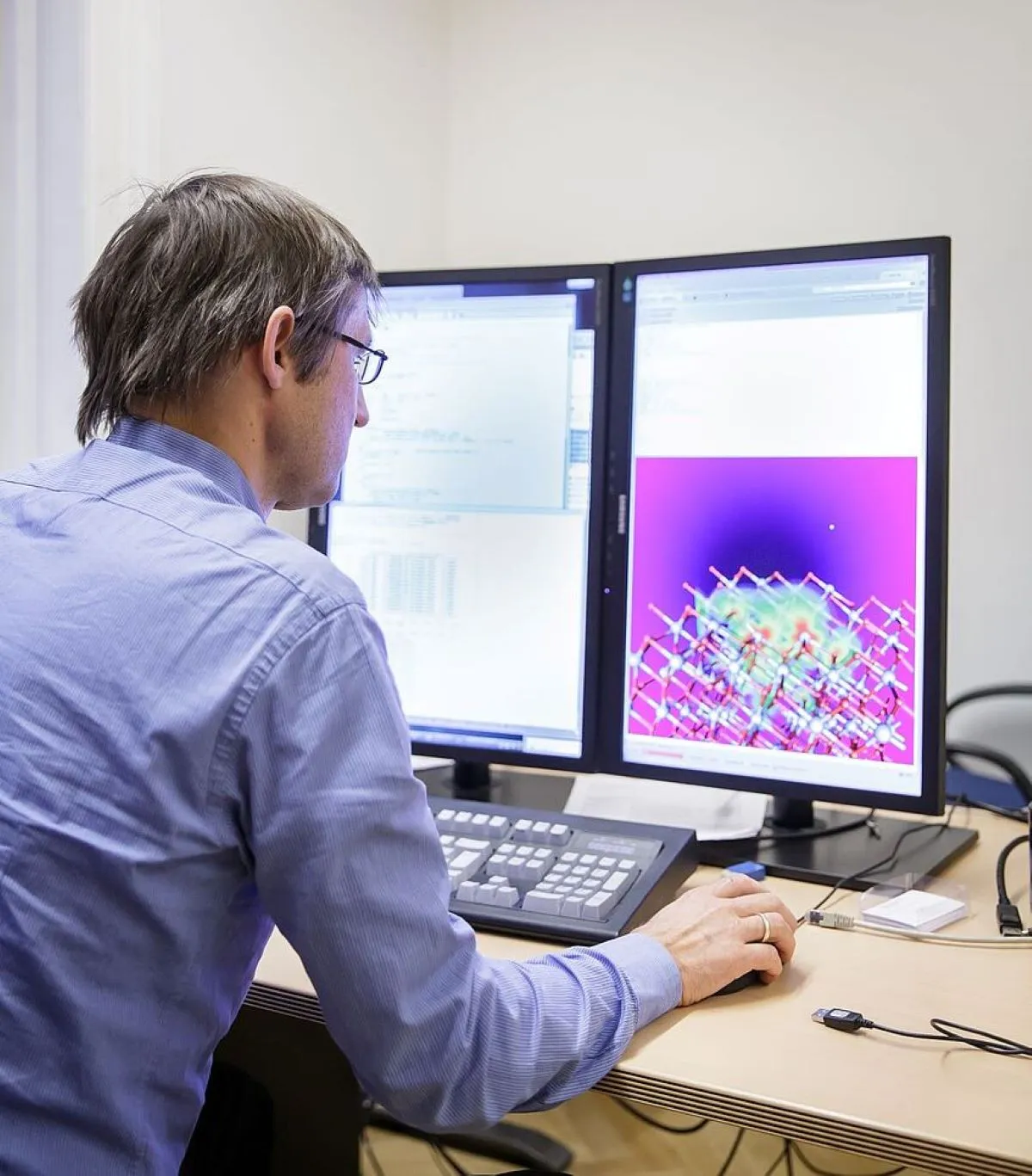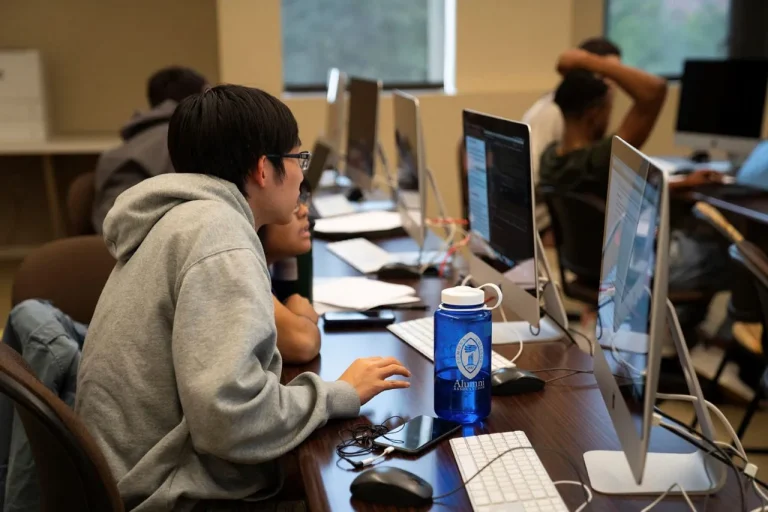Computational Science Vs Computer Science: Understanding The Key Differences
In today’s digital world, both computational science and computer science are appealing fields of study for students interested in technology and programming. But what exactly is the difference between the two disciplines?
If you’re short on time, here’s a quick answer to your question: While computational science focuses on using computers to analyze and solve complex scientific problems, computer science is more concerned with computation itself and developing new hardware and software.
In this comprehensive guide, we will compare and contrast computational science and computer science across various factors – from the focus of each field to the skills you develop and career paths available.
The Focus and Goals of Each Field
Computational Science
Computational Science is an interdisciplinary field that combines computer science, mathematics, and scientific principles to solve complex problems using computational methods. The main focus of computational science is to develop and apply algorithms, models, and simulations to understand and predict the behavior of natural and artificial systems.
It aims to provide insights into various scientific and engineering domains, such as physics, chemistry, biology, economics, and environmental sciences.
Computational scientists often work with large datasets and use advanced mathematical techniques to analyze and interpret the data. They design and implement computational models using programming languages and software tools to simulate real-world phenomena.
The ultimate goal of computational science is to improve our understanding of complex systems, optimize processes, and make informed decisions based on computational analysis.
Computer Science
Computer Science, on the other hand, is a discipline that focuses on the study of algorithms, data structures, and the design and development of computer systems. It deals with the theory, design, and implementation of software and hardware components of computer systems.
The main goal of computer science is to understand the fundamental principles of computing and use that knowledge to develop efficient and reliable computer programs and systems.
Computer scientists work on a wide range of topics, including software development, artificial intelligence, computer graphics, database systems, and networking. They develop algorithms and write code to solve specific problems and create innovative technologies.
Computer science is also concerned with the theoretical aspects of computation, such as the limits of what can be computed and the complexity of different algorithms.
While computational science and computer science share some similarities, their primary focus and goals are distinct. Computational science emphasizes the use of computational methods to model and analyze complex systems in various scientific domains, while computer science focuses more on the theory and practical aspects of computing.
Core Concepts and Curricula
Computational Science Coursework
Computational Science is an interdisciplinary field that combines computer science, mathematics, and scientific disciplines such as physics, chemistry, and biology. Students pursuing a degree in Computational Science can expect to take a diverse range of courses that emphasize the use of computational methods and algorithms to solve complex scientific problems.
These courses may include:
- Mathematical modeling and simulation
- Numerical analysis
- Data analysis and visualization
- High-performance computing
- Parallel computing
In addition to these core courses, students may have the opportunity to specialize in specific scientific domains and take courses tailored to their interests. For example, a student interested in computational biology may take courses in genomics, bioinformatics, and systems biology.
Computer Science Coursework
Computer Science, on the other hand, focuses primarily on the study of algorithms, software development, and computer systems. While there is some overlap with Computational Science, the emphasis in Computer Science is more on the theoretical foundations of computing and the design and implementation of software systems.
Some of the core courses in a Computer Science curriculum include:
- Programming languages
- Data structures and algorithms
- Computer organization and architecture
- Operating systems
- Database systems
Computer Science students also have the opportunity to specialize in various subfields such as artificial intelligence, cybersecurity, and software engineering. The curriculum may include elective courses that allow students to explore their interests and gain deeper knowledge in specific areas.
It is important to note that the coursework for both Computational Science and Computer Science programs may vary across universities. Therefore, it is advisable for prospective students to review the specific curriculum of the institutions they are considering.
Technical Skills and Tools Utilized
Both computational science and computer science require a strong foundation in technical skills and the use of various tools. However, there are some key differences in the specific skills and tools utilized in each field.
Computational Science Skills
In the field of computational science, individuals often work with complex mathematical models and simulations. They rely on advanced mathematical and statistical techniques to analyze and interpret data.
Proficiency in programming languages such as Python, R, and MATLAB is crucial for implementing algorithms and creating simulations. Additionally, knowledge of parallel computing and high-performance computing (HPC) is important for handling large datasets and complex computations efficiently.
Furthermore, computational scientists often collaborate with domain experts from various fields. Therefore, effective communication and problem-solving skills are crucial in order to understand the domain-specific challenges and translate them into computational problems.
Computer Science Skills
Computer science, on the other hand, focuses on the design and development of computer systems and software. Computer scientists are proficient in programming languages such as C++, Java, and JavaScript. They have a deep understanding of algorithms, data structures, and computer architecture.
Additionally, they are skilled in software engineering principles, including software testing, debugging, and version control.
Computer scientists also specialize in areas such as artificial intelligence, machine learning, and data analysis. They use tools and techniques like data mining, pattern recognition, and natural language processing to extract meaningful insights from large datasets.
Moreover, computer scientists are adept at designing and implementing algorithms that optimize computational tasks and improve system performance.
It is worth noting that both computational science and computer science often require proficiency in common tools such as statistical software packages, data visualization tools, and database management systems.
However, the focus and application of these tools may vary based on the specific field and research objectives.
When it comes to technical skills and tools, both computational science and computer science require a solid foundation in programming, mathematics, and data analysis. However, the specific skills and tools utilized in each field may differ based on the primary focus of the research or application.
Job and Career Pathways
Computational Science Careers
Computational science professionals have a wide range of job opportunities available to them. They can work in various industries such as healthcare, finance, engineering, and research. Some of the common job titles in the field of computational science include:
- Data Scientist: Data scientists analyze complex data sets to extract meaningful insights and help organizations make data-driven decisions. They use computational techniques and algorithms to solve complex problems.
- Simulation Engineer: Simulation engineers develop and implement models and simulations to understand and predict real-world phenomena. They use computational tools and techniques to simulate and analyze complex systems.
- Quantitative Analyst: Quantitative analysts, also known as “quants,” work in the finance industry and use computational methods to develop mathematical models for pricing and risk management.
- Research Scientist: Research scientists in computational science work in various fields such as biology, physics, and chemistry. They use computational methods to analyze and interpret scientific data.
With the increasing demand for data analysis and modeling, computational science careers offer excellent growth opportunities. According to the Bureau of Labor Statistics, the job outlook for data scientists is projected to grow by 31% from 2019 to 2029, much faster than the average for all occupations.
This growth is fueled by the increasing need for data-driven decision-making in various industries.
Computer Science Careers
Computer science professionals also have a wide range of career options available to them. They can work in industries such as technology, software development, cybersecurity, and artificial intelligence. Some of the common job titles in the field of computer science include:
- Software Engineer: Software engineers design, develop, and test software applications. They use programming languages and algorithms to create innovative solutions.
- Network Administrator: Network administrators manage and maintain computer networks within an organization. They ensure network security, troubleshoot issues, and optimize network performance.
- Cybersecurity Analyst: Cybersecurity analysts protect computer systems and networks from security breaches and cyber attacks. They develop security measures and monitor for any suspicious activities.
- Artificial Intelligence Engineer: Artificial intelligence engineers develop and implement AI technologies such as machine learning algorithms and natural language processing. They work on creating intelligent systems that can mimic human intelligence.
The field of computer science offers tremendous opportunities for growth and innovation. According to the Bureau of Labor Statistics, jobs in computer and information technology occupations are projected to grow by 11% from 2019 to 2029, much faster than the average for all occupations.
This growth is driven by the increasing need for technological advancements and digital transformation across industries.
For more information on computational science careers, you can visit computational-science.org. For computer science careers, you can visit computer-science.org.
Conclusion
While computational science and computer science both involve computing, they take distinct approaches and equip students with different skillsets. Computational science applies computation to scientific problems, while computer science focuses on developing new hardware, software and algorithms.
By understanding these key differences in focus, curriculum, skills and careers, students can decide which field aligns best with their talents and interests as they prepare for rewarding futures in technology.







